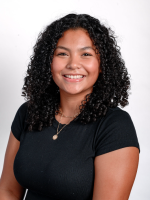Miami−Dade Commissioner Anthony Rodriguez said his proposal to set up cameras to enforce speed limits in school zones — and impose fines on violators — will bolster the safety of tens of thousands of local schoolchildren.
“This is something that will ultimately save lives. And in doing so, I'm a big advocate for that,” Rodriguez told WLRN’s South Florida Roundup on Friday in an interview. Rodriguez represents District 10 on the commission.
The proposal, which the county commission has to approve, follows passage of a new law earlier this year by the Florida Legislature that allows local governments to set up cameras to enforce speed limits in school zones. That law was passed nearly unanimously — with a small number of Republicans and Democrats voting against it.
The Florida Department of Transportation is still figuring out how the new cameras should be implemented.
Rodriguez told WLRN the proposed speed enforcement cameras would be placed in school zones to monitor drivers' speed limits only "on school days [and] during school hours."
Currently, Miami-Dade County Public School's police officers patrol school zones. According to Florida law, if an officer catches someone driving beyond the 15−mph speed limit, they could receive a citation twice the fine for a current speeding ticket.
The amount can add up to more than $250 depending on how many miles over the speed limit they've driven.
Citing the outcry and opposition to red−light cameras, opponents of the school zone cameras argue that local governments will use them as a way to generate revenue and that it will do little to make schools safer.
During legislative debate, state Sen. Jeff Brandes, a Republican from St. Petersburg, said studies show the cameras don't reduce traffic accidents and that low-income people could be hurt financially.
“Most of the people that will be fined by this are not the 1 percent,” Brandes said. “It will be the bottom half that will get half the tickets. And 100 bucks to them is a lot of money.”
State Sen. Bobby Powell, D-West Palm Beach, said ensuring the protection of children is important, but said “putting in more cameras in more places to watch more people” was an overreach by the state.
A recent AAA study of Florida drivers, however, found that 38% admitted speeding in an active school zone and 31% admitted using a cellphone in active school zones.
Rodriguez, a former state legislator defended his proposal, saying it would change the behavior of motorists in school zones.
"This only applies to violators,” said Rodriguez. “And if you don't want to get cited, if you don't want to pay a citation, then don't break the law.”
"I'd rather offset the budget with revenue collected from a citation of a violator, somebody that is breaking the law, than have to increase taxes or charge our residents that are law−abiding citizens,” he said.
Another concern among opponents is motorists ticketed for speeding in school zones when school is not in session, especially during the summer months.
Rodriguez counters that the company providing the cameras detecting speeding motorists will follow the school calendar to avoid fining those when school is not open.
County commissioners gave preliminary approval to the proposal earlier this month and may cast a final vote before the end of the year.
Other topics discussed on the South Florida Roundup: County budgets across South Florida and a court order that will block thousands of recently arrived Cubans from getting permanent residency in the U.S.
You can listen to the full episode here or wherever you get your podcasts.






